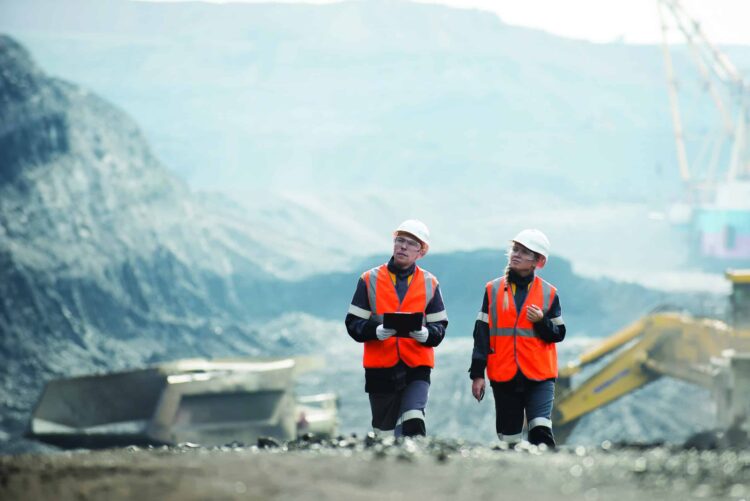Responding to Carbon Pollution Pricing Systems

Provincial Plans, Electrification and Clean Energy as a Way Forward for Western Canada?
On March 25, 2021, the Supreme Court of Canada (SCC) released its decision in Reference re Greenhouse Gas Pollution Pricing Act, 2021 SCC 11. The majority of the SCC ruled that the federally enacted Greenhouse Gas Pollution Price Act (GGPPA) is constitutional.
As long as the GGPPA remains in force, no Canadian jurisdiction can avoid placing a price on carbon moving forward. Under Part 1 of the GGPPA, the Federal Government, or Provincial Governments under regimes equivalent to Part 1 of the GGPPA, will now regulate a broad range of greenhouse gas (GHG) emissions sources across Canada. Under Part 2 of the GGPPA, all industrial emitters must comply with Output-Based Pricing Systems (OBPS) regulating their emissions.
For an overview on the SCC’s decision, read this recent blog post.
What does this mean for Western Canada?
When the Federal Government enacted a pricing system on the consumption of hydrocarbons such as gasoline, diesel fuel and coal (commonly called the “Carbon Tax”), the reaction by some in Western Canada was to focus on the negative aspects of such pricing system. Many industry participants in Western Canada interpreted a price on carbon as an immediate increase in costs associated with producing and consuming hydrocarbons.
Several constitutional experts anticipated the SCC’s decision due to its impact on the division of powers in the Canadian federation.
Currently, provinces such Saskatchewan and Alberta rely disproportionately on hydrocarbons to drive their local economies forward compared to the rest of Canada. The SCC’s decision grants the Federal Government the right to implement legislation over industries that some in Alberta and Saskatchewan felt was, or should be, under the purview of the Provincial Government. In particular, the Federal Government’s GGPPA will significantly affect Western Canada’s traditional and most important industries, such as oil and gas, agriculture and mining . It is not yet clear how the Canadian federation will adjust and adapt to the price on carbon resulting from the GGPPA.
With such a clear statement from the SCC about the constitutionality of a federal carbon pricing scheme, many in Western Canada are asking: Where do we go from here?
Provincial carbon regimes
It is important to understand that the federal GGPPA is meant to be a backstop for provincial carbon pricing regimes across Canada. Under the GGPPA, provinces can establish their own provincial schemes to price carbon as long as they meet the minimum standards set out in the GGPPA and the Governor in Council approves the scheme.
It is advantageous for provinces to create their own provincial schemes. By doing so, provinces maintain control over how they use or redistribute funds collected under their provincial regimes.
Saskatchewan has already announced its plans to establish its own regime to comply under Part 1 of the GGPPA. Alberta has yet to make a similar announcement; however, Alberta may follow Saskatchewan’s lead to ensure it controls any funds collected. Of note, both Saskatchewan and Alberta already have, or plan to have, their own provincial output-based pricing system (OBPS) regimes for large emitters that comply with Part 2 of the GGPPA.
Electrification as a means to assist and retain traditional industries
In addition to establishing their own provincial carbon pricing regimes, western Canadian provinces might consider how electrifying their traditional industries can help them regain or maintain control over such industries.
The generation, distribution and transmission of electricity falls squarely within a province’s jurisdiction. Industries that rely on hydrocarbons for their operations must continually comply with the GGPPA. By pivoting their operations away from hydrocarbons and onto electricity, traditional industries may shift what level of government has the most significant control over the energy consumed by their operations.
Even before the GGPPA, businesses in Western Canada have taken significant steps toward electrifying and consequently decarbonizing their operations. The increased importance on environmental, social and governance (ESG) standards has been a major catalyst for this movement. For instance, as of March 29, 2021, 73 of the largest asset managers in the world, representing $32 trillion in assets globally, pledged to work with their clients to reach net-zero emissions by 2050. Investors around the world are increasingly considering ESG standards as they build out their portfolios, and businesses across Western Canada are responding accordingly.
Newly electrified industries in Western Canada will also require additional clean energy sources. Many countries and regions, most notably those in Europe, such as France and Germany, have long appreciated how plentiful clean energy can be used to attract ESG-focused investments and encourage their own energy self-sufficiency.
Overall, in light of the increasing cost of carbon under the GGPPA, two important steps that Western Canadian provinces might consider are:
- incentivizing carbon-intensive industries to electrify their operations; and
- building the power generation infrastructure necessary to provide their industries with access to reliable and cheap electricity generated from clean energy sources.
Electrifying Western Canada’s traditional industries today will help to ensure that these industries remain within the purview of the provinces in the future — and, in particular, as the cost of carbon increases under the GGPPA over the next decade.
Many opportunities exist to generate cheap, clean and plentiful power in Western Canada to power its electrified operations, but industry participants can take further steps to continue to build out this important infrastructure, as other parts of Canada have already done.
Western Canada has a path forward
Establishing provincial carbon pricing schemes, electrifying Western Canada’s traditional industries and developing additional clean energy sources can assist Western Canada as it adapts to the rising cost of carbon under the GGPPA.
The MLT Aikins energy group advises participants in the energy industry in Western Canada on a diverse range of matters, including environmental, social and governance (ESG) strategies and compliance. Contact a member of our energy group today to learn more about how you can electrify and decarbonize your operations.
Note: This article is of a general nature only and is not exhaustive of all possible legal rights or remedies. In addition, laws may change over time and should be interpreted only in the context of particular circumstances such that these materials are not intended to be relied upon or taken as legal advice or opinion. Readers should consult a legal professional for specific advice in any particular situation.


